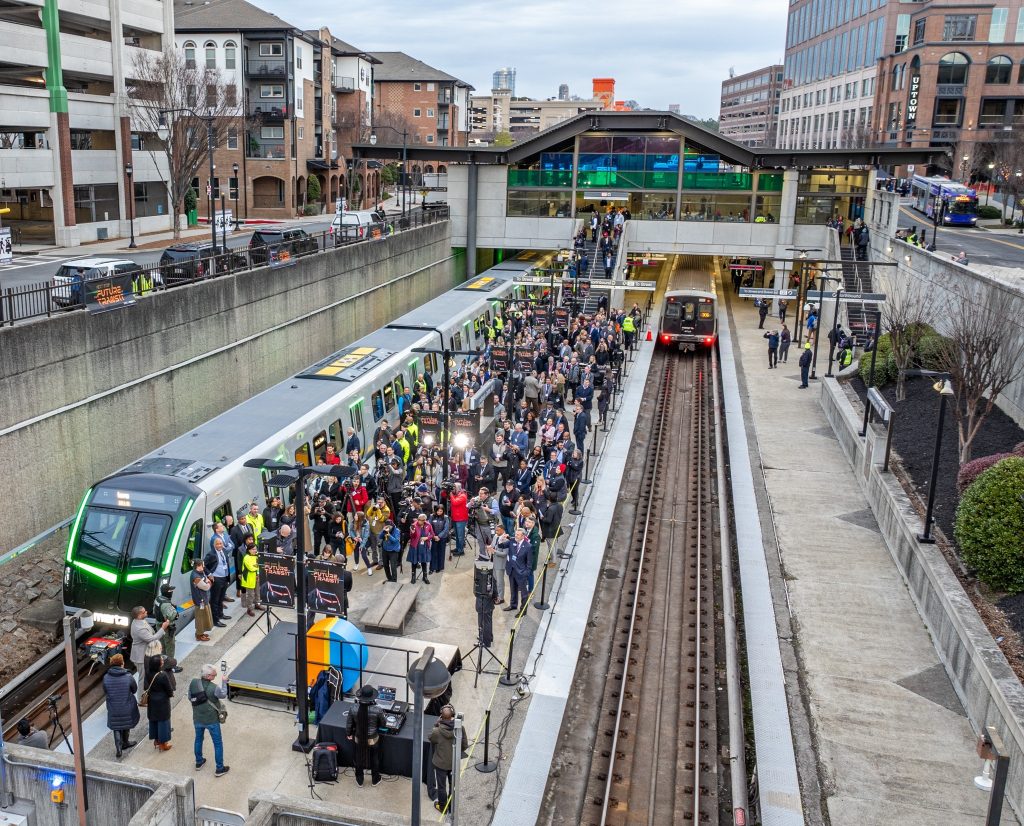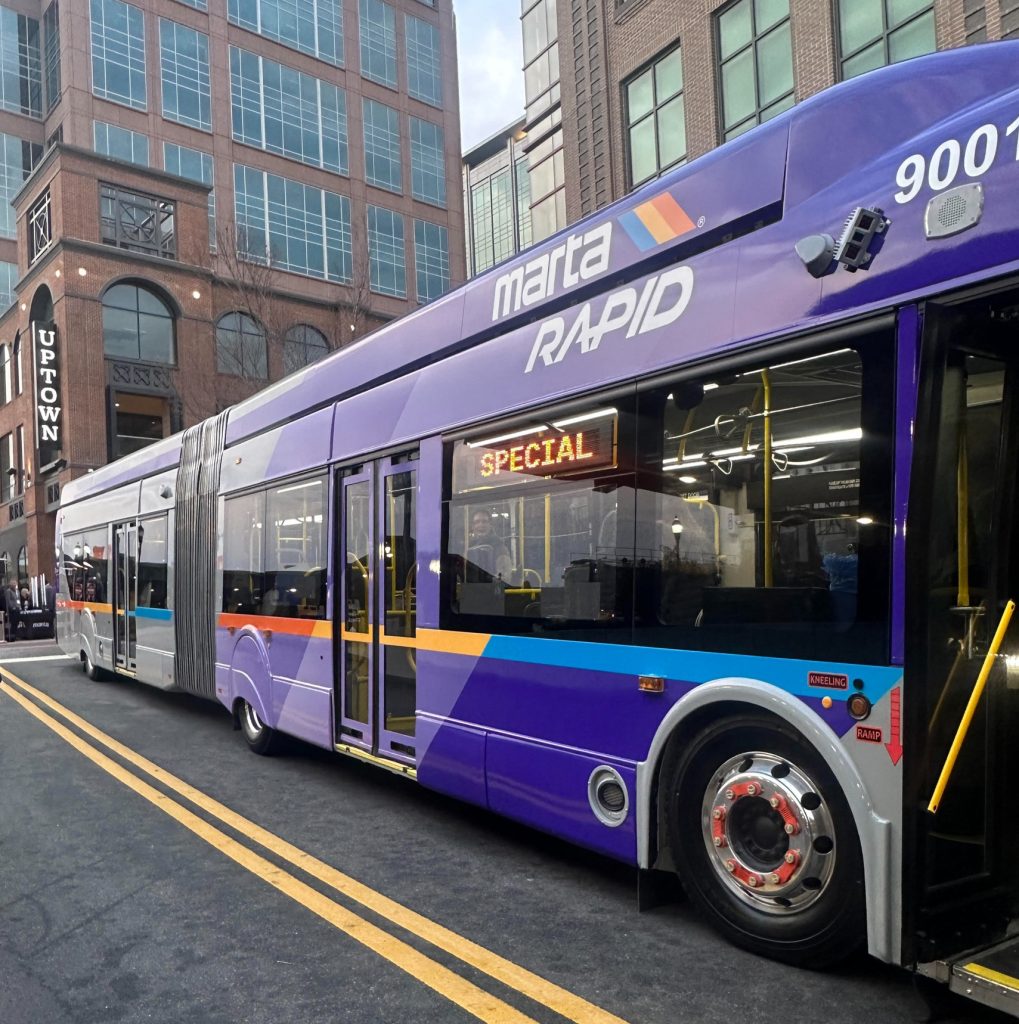MARTA Unveils Vision for Future of Transit in Metro Atlanta
2/10/2025

The Metropolitan Atlanta Rapid Transit Authority (MARTA) laid out initiatives underway that will define the future of transit in metro Atlanta at its recent State of MARTA event, addressing the region’s growing population and increasing transportation needs. The region expects a population increase from 6 million to 8 million by 2050.
MARTA General Manager and CEO Collie Greenwood unveiled the agency’s first CQ400 train at the event. “When I stepped onto that new train, it felt like stepping into the future,” he said. “These new railcars are an inspiration to everyone at MARTA and to our customers who will get to experience a cleaner and safer ride—and hopefully one that shows them how transit can make their lives easier and their trip more enjoyable.”
The CQ400 railcars feature open gangway designs, upgraded lighting and seating, digital displays, charging stations, and improved safety measures. The first batch is set to arrive for testing and planned deployment later this year.
Greenwood described several other projects at the event:
Communications-Based Train Control: This cutting-edge technology will improve rail safety, efficiency, and on-time performance.
Zero-Emission Vehicles: MARTA Rapid BRT lines will feature zero-emission vehicles equipped with wireless charging, custom interiors, and ADA-friendly platforms. They will debut along the Summerhill corridor this year.
NextGen Bus Network: MARTA’s comprehensive bus network redesign will offer faster, more reliable service. Frequent service routes will expand from five to 18 corridors, providing 15-minute service to 245 percent more riders. The new network will also feature consistent seven-day service and 12 on-demand zones for underserved areas.
Fare Payment Upgrades: MARTA’s AFC 2.0 system will allow riders to use credit cards, smartphones, and smartwatches for seamless entry. Enhanced faregates will improve security and accessibility.

Greenwood established MARTA’s vision to extend beyond infrastructure to creating a safe, clean, and reliable experience for passengers through:
Safety Innovations: A real-time crime center, joint bike patrols, and expanded MARTA Police presence.
Transit-Oriented Development: Projects such as the Marchon at King Memorial and Quill at Candler Park have transformed station areas into vibrant, walkable communities, addressing housing affordability while fostering economic growth. Future TOD at Indian Creek and Kensington will do the same.
Technology Upgrades: Real-time train arrival information, a redesigned MARTA app, and updated station information screens.
MARTA is undertaking its largest system expansion and modernization effort since its founding, with efforts underway to complete:
New MARTA Rapid Lines: Construction is well underway on the MARTA Rapid Summerhill line, with additional lines planned for Campbellton Road, Southlake, and SR-54. These projects aim to transport passengers more efficiently through congested areas and connect them to the larger MARTA network.
Transit Hubs: New transit hubs in Clayton County, South DeKalb, and Stonecrest will improve connectivity and access for bus passengers.
Station Modernization: MARTA is investing $1 billion to upgrade all 38 rail stations and will soon begin a transformative project at Five Points Station to create a transit hub and city center.

Greenwood also discussed how MARTA is committed to preparing future leaders through partnerships with organizations such as Cristo Rey High School, which offers students valuable work experience. MARTA’s Apprenticeship Program for bus technicians, for example, is helping to build rewarding careers in transportation while supporting the system’s expansion.
As metro Atlanta prepares to host the 2026 World Cup and the 2028 Super Bowl, MARTA’s investments will play a critical role in ensuring seamless transportation for millions of visitors.
“The future is now, and it’s happening at MARTA,” said Board Chair Jennifer Ide. “We are breaking ground, launching innovative services, and expanding our system to meet the needs of our growing region. Together, we’re building a brighter, more connected future for metro Atlanta.”